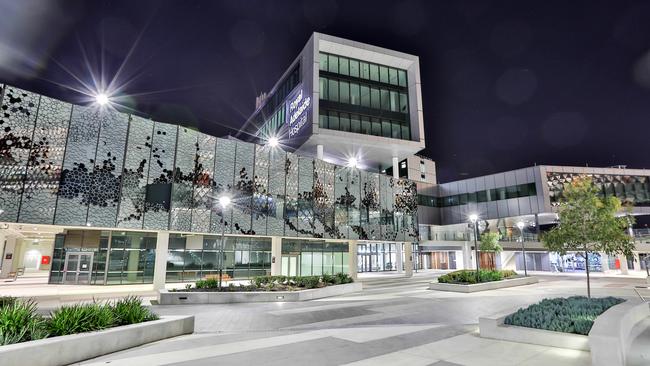Mental health patients wait four days in Emergency Department because no beds were available in two Adelaide hospitals
TWO mental health patients languished in Emergency Department beds for more than four days last week because there was nowhere to accommodate them after they were admitted.
SA News
Don't miss out on the headlines from SA News. Followed categories will be added to My News.
- Ambos ramping, being diverted as hospital EDs overflow
- What’s happening with the Repat’s masterplan?
- The mental health program your footy club needs
TWO mental health patients languished in Emergency Department beds for more than four days last week because there was nowhere to accommodate them after they were admitted.
They were among a growing group of mental health patients caught in “access block” — treated in the ED but then left in limbo until a ward bed becomes available.
The patients were in the Central Adelaide Local Health Network system, which covers the Royal Adelaide Hospital and The Queen Elizabeth Hospital.
The Australasian College for Emergency Medicine is calling for action to help patients with acute mental conditions in such situations, including mandatory reporting of cases involving extreme wait times for specialised care.
This is modelled on a South Australian system known as “hard deck”, where cases of patients waiting more than 24 hours are notified to senior officials, although the College wants such notification after 12 hours.
Today it is releasing national data showing mental health patients account for just 4 per cent of presentations in EDs, but for about a quarter of patients caught in “access block” – defined as waiting eight hours or more for a ward bed.

A national survey of 65 EDs by the College found that over the past year two-thirds reported wait times for beds of more than 24 hours, and almost a quarter reported waits of more than 72 hours for mental health patients.
The longest wait was six days in an interstate hospital.
College SA faculty spokesman Dr Mark Morphett said he was aware of multiple cases in SA of mental health patients waiting days for a bed, including two people who had been waiting more than four days last week.
Dr Morphett noted that patients presenting with a mental health crisis, including those with substance abuse, are among the most vulnerable but often cannot advocate for themselves.
“Being stuck in an ED is about the worst place you can be with a mental health crisis – it is a high stimulation environment with lots of bright light and a lot of activity going on 24/7,” he said.
He said there had been improvements in flow for mental health patients in southern Adelaide, but the situation in Central Adelaide “has been bad for quite some time”.
In the north, the closure of the short-stay mental health facility at the Lyell McEwin Hospital made medical staff there “feel they are going backwards”.
College president Dr Simon Judkins said long waits could lead to poorer outcomes.
“To minimise time spent in the ED, measures might include alternative models of care, particularly after-hours mental health support models, and increasing mental health expertise in EDs,” Dr Judkins said.
The College also calls for:
IMPROVED emergency department design to ensure settings support the wellbeing of patients experiencing acute mental and behavioural conditions, particularly those who are agitated and distressed, such as access to quiet, low-stimulus private spaces.
INCREASED funding to community-based and inpatient mental health and alcohol and other drug services.
“ACEM believes that funding to mental health services should occur as a matter of urgency,” Dr Judkins said.




